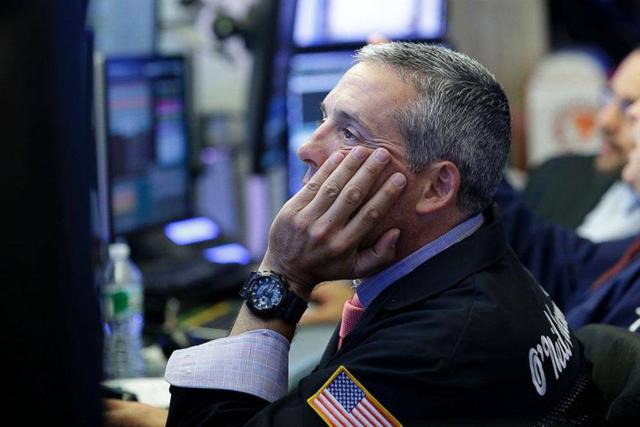Understanding the role of different roles in cryptocurrency exchanges
Originally written by Shane Molidor, Head of Global Business Development at BitMax & GDM, compiled by the Bluemountain Labs team, the English copyright belongs to the original author.
The role of the digital asset trading platform has far exceeded the platform of trading between buyers and sellers.
This expanded role brings a series of evolving expectations for speculative traders and investors. They must understand the multifaceted nature of the trading platform and the different aspects of cooperation between digital asset projects, platforms and support organizations known as liquidity experts or designated market makers.
- Former Greek Finance Minister: Zuckerberg’s Libra Dream is a good thing, this design can be achieved by the IMF
- Telegram writes to investors: the delay in the hearing is a "positive step"
- HTC launches the first Exodus 1s smartphone that runs a complete node of Bitcoin
My expertise in some of the top digital asset institutions in North America and Asia (such as Gemini, etc.) gives me a unique perspective on the controversial links between trading platforms and liquidity experts. The following content is intended to explain the specific role each institution plays in the rapidly evolving digital asset ecosystem.

The role of trading platforms and exchanges
The trading platform or "exchange" acts as a public platform to facilitate interaction between buyers and sellers. Market participants on the trading platform range from profit-oriented traders to utilitarian traders. The role of the trading platform in the digital asset ecosystem has transcended traditional market rivals, covering all aspects of trade facilitation, including exchange, clearing and settlement, and custody. Therefore, it is not appropriate to refer to platforms such as Binance and Coinbase as “exchanges” because each platform operates as a multi-platform: one for trading, clearing, settlement, deposits, and withdrawals.
The growing popularity of "cotton coins" has brought another role for trading platforms: traders entering the entry of new assets. As high-quality projects tend to attract new customers into their respective platforms, the competition between platforms becomes “first time listing”. Many platforms encourage listed projects to leverage the services of external agencies such as marketing companies and liquidity experts to promote post-marketing success. In fact, some platforms require that all “major listings” projects have a listing strategy that includes marketing and liquidity support before and after the platform goes public. These platforms believe that this holistic approach to listing is critical to fostering a dedicated project community and effective market transactions.
This overall listing is not unique to the digital asset ecosystem. For example, private companies seeking initial public offerings (IPOs) use financial institutions' services as “underwriters” to assist in marketing, distribution and active liquidity to meet Reserves before and after listing on the New York Stock Exchange, NASDAQ or BATS.
Despite the overall listing approach, the underlying value of an asset (ie, the ability of an asset or its associated blockchain network to provide utility) is a key determinant of success and price behavior after the listing of the project. Effective marketing can increase awareness of asset utility, while strategic liquidity preparation can improve transaction efficiency, but the project itself supports its utility and builds value only by achieving milestones in the roadmap, developing innovative technologies, and developing underlying networks of assets. .
Some communities are increasingly relying on trading platforms to “list valuable assets” and often condemn platforms that list assets that do not perform well after listing. Although this is almost certainly a symptom of a fast-paced mentality, this mentality dominates many password-investing communities, but this is a complete misunderstanding of the role of the trading platform. As mentioned earlier, the digital asset trading platform is essentially a public facility that facilitates transactions between various participants. The trading platform is not an investment advisor and certainly does not guarantee the future performance of each of the assets listed. While the platform does have a responsibility to conduct due diligence and knowledge of the quality list project (KYC), the price of each asset listed on the platform ultimately depends on the buyer's willingness to interact (ie supply and demand) in the market. The market power of supply and demand is driven by the basic value of assets, and the trading platform has no effect on this.

The role of liquidity providers
A liquidity expert or designated market maker is a trading institution that contracts with the project to provide liquidity after the platform assets are listed. Some experts charge fees for their services and most transactions, which are funded by the project itself ("transaction funds"). If an expert can effectively increase trading capital through a combination of trading and inventory gains and losses, most experts will be motivated by “performance fees”, and of course compensation.
The goal of liquidity experts is to increase the efficiency of asset transactions. By providing strategic liquidity, this in turn provides other market participants with the opportunity to trade with minimal market influence, effectively creating positive externalities in the marketplace. The relevant value proposition of liquidity experts is to promote effective price discovery when traders assess the underlying value of newly listed assets (ie, the ability of assets or their associated networks to provide utility).
Because the goal of liquidity experts is to increase transaction efficiency, trading institutions will specifically provide liquidity rather than liquidity. Therefore, it is impossible for professionals to push up or sell the price of an asset because their transactions do not and should not affect or influence the market like aggressive liquidity directives. In addition, it is widely recognized as a market-control strategy by buying and selling assets to influence prices (buy or sell); therefore, institutional-level liquidity experts are less likely to adopt this strategy.

Risks and limitations associated with contracted liquidity experts
While liquidity plays a vital role in the health of digital asset markets, signing up with liquidity experts is neither a “magic bullet” nor a catalyst to ensure long-term success in the implementation of tokens. There are a number of risks associated with working with liquidity experts, and the most pressing is the shrinking of funds used by experts to provide liquidity. The reason for this may be the following two, or a combination of the following two reasons:
If the expert is in the “failure” of too many trades (ie, low-priced sales and high-priced buys), the value of the trading capital is slowly devalued. To further expand this, the transaction can be viewed as a “zero-sum game,” in which one party can only win at the expense of the other. In order to increase market efficiency, experts may buy and sell assets at an untimely price, which is beneficial to other profit-seeking traders (in this case, “winners”).
If bearish sentiment leads to huge selling pressure on assets, it erodes the willingness of traders to buy. If this happens, the expert will be the only businessman who has the willingness to buy assets. If a large number of accumulated sellers unbalance losses and subsequently make the market unfavorable to the experts, their purchase orders will be executed and the newly established positions will result in direct losses.
To mitigate the risks associated with transaction margin withdrawals, the project provides liquidity experts with transparency on key indicators such as revolving supply, token investor cost basis and vesting schedule. For liquidity experts, full access to accurate information about these metrics is critical. By accessing this information, experts can estimate the fair value of assets and transactions in an informed manner (ie, avoiding the loss of order losses) and properly estimate the various levels of support and resistance in asset pricing. Based on these estimates, experts can proactively or conservatively provide liquidity related to asset prices at any point in time.
The project failed to disclose information about the liquidity, the investor's cost basis and the attribution schedule of the token may lead to information asymmetry, in which experts may trade at an uninformed price level, which is not conducive to other profit-seeking. trader. In the worst case, the accumulated seller order imbalance may repeatedly make the trader feel overwhelmed. This "toxic" order flow consumes a lot of trading money.
Another way to hedge the risk of trading funds is to encourage liquidity experts and collect performance fees based on market conditions and trends through potentially profitable transactions (ie, low-priced buys, high-priced sells) to encourage trading deposits. Save or grow. This type of incentive structure may encourage experts to conduct conservative transactions with greater judgment, rather than always providing strong and flexible liquidity to improve transaction efficiency.
in conclusion
All in all, the role of digital asset trading platforms is evolving, bringing more expectations from speculative traders and investors. The platform can form synergies with external trading organizations such as liquidity experts to support projects; however, in essence, these platforms are price-independent platforms that can arrange transactions between buyers and sellers. Of course, projects with positive price action after listing can be a powerful customer acquisition tool, but within the scope of trading platforms or any liquidity experts will not adopt a manipulation strategy, this is a view that must be adhered to.
We will continue to update Blocking; if you have any questions or suggestions, please contact us!
Was this article helpful?
93 out of 132 found this helpful
Related articles
- The second batch of blockchain information services passed the record to help the industry develop
- The new chairman of the CFTC hinted that ETH futures may be launched soon, will it be the next big derivative to hit the market?
- Looking for future cryptocurrency unicorns in an invisible agreement
- G7 Stabilization Coin Report (full text): Stabilizing coins may be more capable of acting as a means of payment and value storage
- Dai meets the biggest opponent? Tether considers developing algorithm stabilization currency USDTX
- Lawyer's point of view | Xiao Wei: The policy and regulatory risk of the stable currency comes from two aspects.
- The stability of the certification is afraid of being regulated, will Tether give up the USDT?






